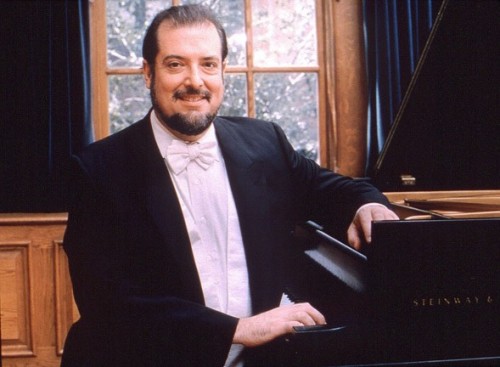Garrick Ohlsson Delivers Pitch-Perfect Performance
One of the Best Classical Performances Ever
By: Adrian Hill - Aug 30, 2010
Perfection happens so rarely. Years might go by before a Major League pitcher pitches a perfect game. Decades have passed since Nadia Comaneci’s perfect scores at the 1976 Olympics in Montreal. But those are sporting events. Perfection has a number there. We know clearly a perfect score is perfect. What about the arts? How do we know when a performance or painting is absolutely perfect? The obvious answer is we don’t. And unlike baseball or bowling, there’s endless disputes over whether a particular performer or artist has produced a perfect masterpiece.
I have been to quite a few classical music concerts in my lifetime. I have been fortunate to hear a lot of phenomenal performances by legendary performers as well: Luciano Pavarotti in his prime at the Metropolitan Opera and Covent Garden, Martha Argerich channeling Bach through her glorious hands, Itzhak Perlman making his violin practically sing at Tanglewood. All of these performances were as close to perfection as I’ve ever witnessed on stage.
Add to this illustrious list of perfect concerts pianist Garrick Ohlsson’s performance of Chopin’s music on Thursday night in Seiji Ozawa Hall at Tanglewood. I’ve heard Arthur Rubinstein’s recordings of Chopin (who was born 200 years ago) over and over during the years. I’ve always considered Rubinstein’s recordings to be the best performances of Chopin’s beloved piano music. Ohlsson’s performance this past week at Tanglewood was right on par – or maybe even a little better – than Rubinstein’s classic interpretations of such beloved, often haunting music.
Right from the first note of Nocturne, Opus 9, Number One in B Flat Minor, Ohlsson made the piano sing with a sound so pure, I almost could not believe my ears. And over the next two-and-a-half hours and three encores in response to the roaring reception he received in Seiji Ozawa Hall, Ohlsson proved why he won the 1970 Frederic Chopin International Piano Competition (which is held every 5 years in Poland and will be held this year in October) and he remains one of the preeminent interpreters of Chopin’s delicate, passionate music. (Argerich, by the way, won the Chopin competition in 1965. And another phenomenal interpreter of Chopin’s music, Mitsuko Uchida, finished second in 1970.)
Ohlsson’s lighter than air touch during his performance of three Nocturnes made me wonder how someone could play the notes so delicately and yet make them ring throughout the concert hall so clearly. I’ve never heard a crowd so quiet in a concert hall. The only noise I heard was the faint rustling of leaves on the trees outside the back open wall of Ozawa Hall.
I could go on and on about every single piece Ohlsson played Thursday night. Each one sounded dazzling. His pacing and timing were perfect. I especially enjoyed his performance of Ballade Number 1 in G Minor, Opus 23. The music sounded absolutely thrilling in Ohlsson’s glorious hands. Same goes for the four Mazurkas Ohlsson played, as well as Sonata Number 3 in B Minor, Opus 58. I never realized a piece of music could sound so heavenly.
The last encore Ohlsson played was Chopin’s Polonaise in A Flat Major, Opus 53. I cannot remember the last time I felt so absolutely joyful listening to a pianist play a piece of music I’ve heard many, many times. He made this familiar music sound fresh and alive, as if he were improvising on the piano and these magical notes just happened to pour out of the piano.
All I can say is WOW!!!
I know that’s not a very sophisticated or nuanced evaluation of Ohlsson’s performance. But I was left so speechless afterwards, I still can’t believe I witnessed such a magical evening of magnificent music.


